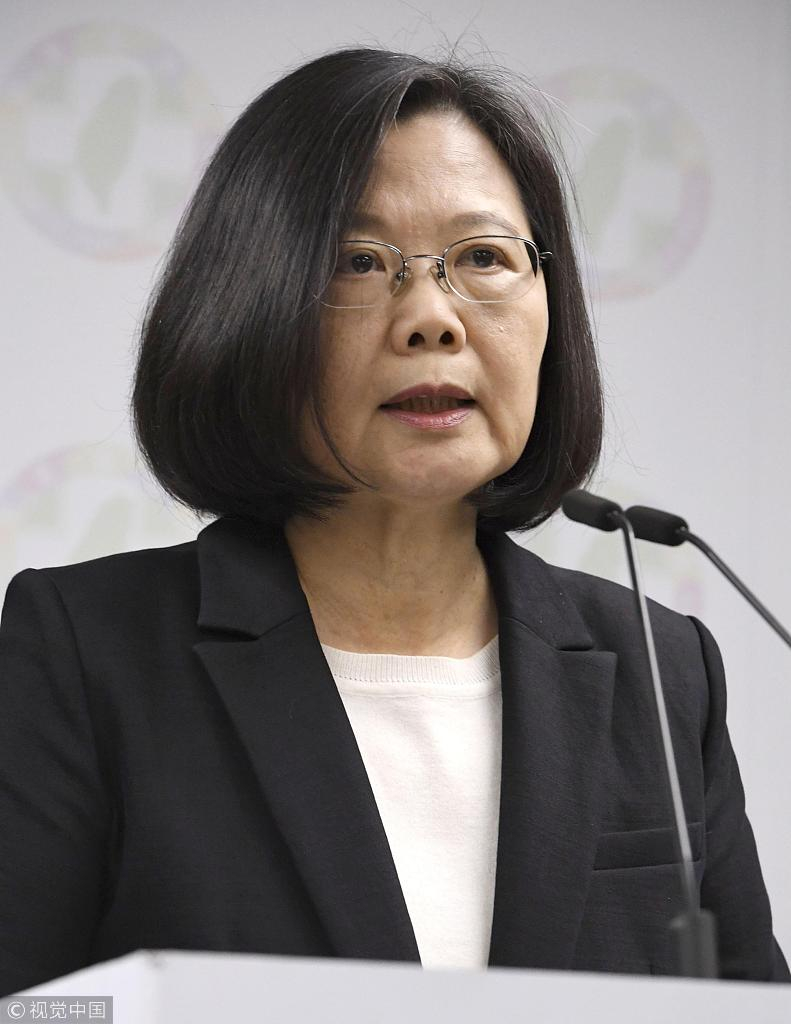
Opinion
10:58, 25-Mar-2019
Opinion: There are no military solutions to the Cross-Strait issue
Adam Garrie

Editor's Note: Adam Garrie is director of the UK-based global policy and analysis think tank Eurasia Future and co-host of a talk show "The History Boys." The article reflects the author's opinion and not necessarily the views of CGTN.
Recently, it is believed that the Trump administration in the U.S. has given tacit consent to Taiwan's request for buying more than 60 F-16 fighter jets. It will have negative impacts on the current Cross-Strait situation.
Whilst the presence of F-16s on the island would not alter the balance of power in the region, the move is a clear provocation aimed at worsening Cross-Strait relations at a time when the Chinese people seek peace, harmony and an economic framework to foster stability. This stands in sharp contrast to a military approach to a delicate issue.
Those who are preparing for war are engaging in reckless behavior which threatens a lasting peace based on sustainable prosperity. Although the presence of American fighter jets in Taiwan would likely not lead to war, the delivery of warplanes from America to Taiwan would represent a deeply counterproductive step that can serve absolutely no purpose to anyone who seeks peaceful development among the Chinese people.

People protest Taiwan leader Tsai Ing-wen's passing through the territory of the U.S. in Los Angeles, California, U.S., August 12, 2018. /VCG Photo
People protest Taiwan leader Tsai Ing-wen's passing through the territory of the U.S. in Los Angeles, California, U.S., August 12, 2018. /VCG Photo
There are also clear political overtones behind any attempt to militarize the Cross-Strait issue. At present, Tsai Ing-wen, Taiwan's leader, is facing a great deal of opposition to her political leadership in Taiwan as her party lost a substantial number of votes in last year's local elections. Knowing that the young people in Taiwan seek a future based on peaceful economic connectivity rather than hostile Cross-Strait relations, Tsai appears to have literally called in the big guns in a vainglorious attempt to revive her confrontational approach to politics.
This violates both the letter and spirit of the Consensus of 1992 and as such ought to be seen as an affront to the collective spirit of peace which ought to transcend party politics and personal ambitions.
The Chinese leadership has made it clear that the only path forward in Cross-Strait relations is one based on dialogue, a commitment to build upon the Consensus of 1992, an emphasis on economic cooperation and the adoption of a peaceful mindset that overtly rejects confrontation or hostility of any kind.

Taiwan leader Tsai Ing-wen holds a press conference at the headquarters of the Democratic Progressive Party in Taipei , November 24, 2018. /VCG Photo
Taiwan leader Tsai Ing-wen holds a press conference at the headquarters of the Democratic Progressive Party in Taipei , November 24, 2018. /VCG Photo
The forces of history which do not answer to the desires of any one politician make it clear that a resolution of the Cross-Strait issue will be inevitable in time. Thousands of years of Chinese history have proved that people attain strength through unity and prosperity through harmony. Because of this, any steps taken by Washington or Taipei which retard the progress of an inevitable drive for peace among the people must be categorically rejected by all those who wish to engage in responsible measures in order to assure that a better future begins tomorrow rather than in a distant future.
As the world becomes ever more economically interconnected and as cultural connectivity creates ever more global opportunities for people, it is not just absurd but it is retrogressive to display the symptoms of bellicosity in an age where peace-loving people are focused on the development and cultural enrichment.
(If you want to contribute and have specific expertise, please contact us at opinions@cgtn.com.)

SITEMAP
Copyright © 2018 CGTN. Beijing ICP prepared NO.16065310-3
Copyright © 2018 CGTN. Beijing ICP prepared NO.16065310-3